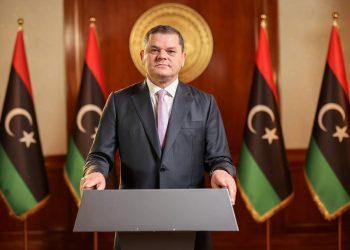By George Grant.
Tripoli, 5 May:
The campaigning NGO Human Rights Watch has accused the NTC of doing “a cut and paste job . . .[restrict]with Qaddafi-era laws” after it announced legislation criminalising the “glorification” of Muammar Qaddafi and any criticism of the revolution which brought an end to his rule. HRW called the new law “draconian”.
“The law violates Libya’s provisional constitutional covenant and international human rights law, both of which guarantee free speech”, it said.
It also criticised the associated legislation, passed on 2 May, under which is now a criminal offence to spread “false or vicious news” or “propaganda” that harms the “military efforts to defend the country, terrorises the people or weakens the morale of its citizens”. Included in “propaganda” is glorification of Qaddafi, his regime, and his sons. Contravention of this law can lead to life imprisonment if the offender is deemed to have harmed the country.
Charges can also be brought against anyone accused of doing anything to “damage the February 17 Revolution”. Any person who “insults Islam, or the prestige of the state or its institutions or judiciary, and every person who publicly insults the Libyan people, slogan or flag”, can also be imprisoned.
“This legislation punishes Libyans for what they say, is reminiscent of the dictatorship that was just overthrown”, said Sarah Leah Whitson, Middle East and North Africa director at Human Rights Watch. “It will restrict free speech, stifle dissent, and undermine the principles on which the Libyan revolution as based”. She called it “a slap in the face for all those who were imprisoned under Qaddafi’s laws criminalizing political speech and who fought for a new Libya where human rights are respected”.
Libya’s new leaders, she said “should know that laws restricting what people can say can lead to a new tyranny”.
Under the previous government, criticism of Qaddafi or the Al-Fateh revolution which brought him to power in 1969 was punishable by death.
On 3 May, Amnesty International condemned the new law as an “eerie reminder of draconian legislation that was used to stamp out dissent during Qaddafi’s brutal four-decade rule”, whilst the legislation has also provoked a negative reaction on social networking sites including Facebook and Twitter.
HRW condemned the new law as being in contravention of Libya’s Constitutional Covenant, passed on 3 August 2011, which guarantees freedom of speech and assembly, as well as the International Covenant on Civil and Political Rights (ICCPR) and the African Charter on Human and Peoples’ Rights (ACHPR), both of which Libya is a party to.
It called on governments supporting Libya’s transition, as well as the UN mission in Libya, to condemn the newest law strongly, and other unlawful attempts to restrict free speech, expression, and assembly.
The new law is not the only legislation passed by the NTC which has raised concerns about its commitment to freedom of expression. On 24 April, the NTC approved laws 29 and 30, which banned parties with a religious, tribal or regional platform. That legislation was repealed barely a week later, following criticism from within the NCT that the laws were both undemocratic and practically unworkable.
Speaking at an event to mark World Press Freedom Day, meanwhile, NTC Chairman Mustafa Abdul Jalil spoke of the need for an “honour code for journalism” in Libya, “where journalists should report news as it is with credibility”. He warned that those who violated the code would be arrested. It was not clear, however, whether Jalil was merely referring to factual inaccuracies, or if he had in mind journalists who published opinions which Libya’s authorities subsequently deemed to be “not credible”.
[/restrict]





